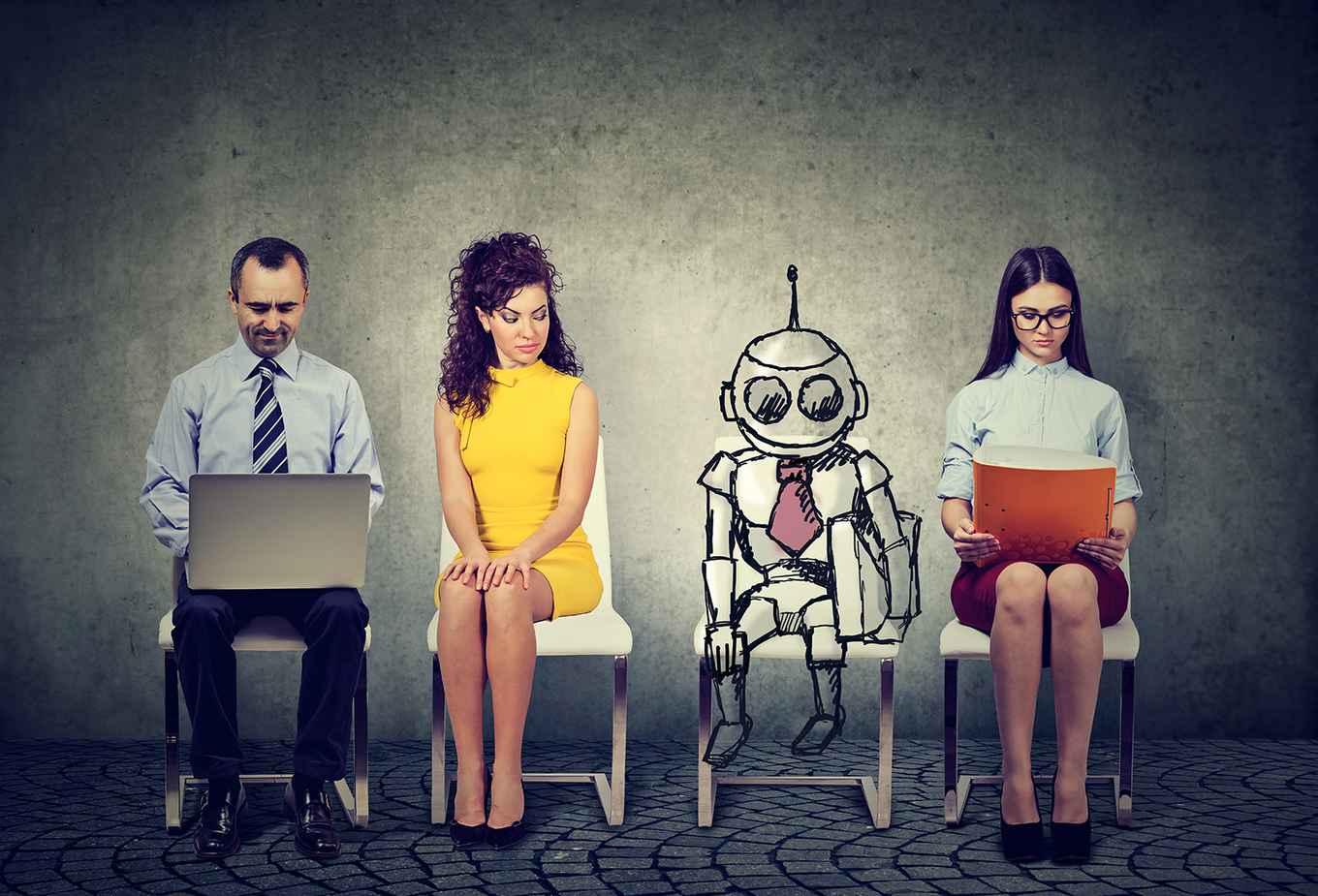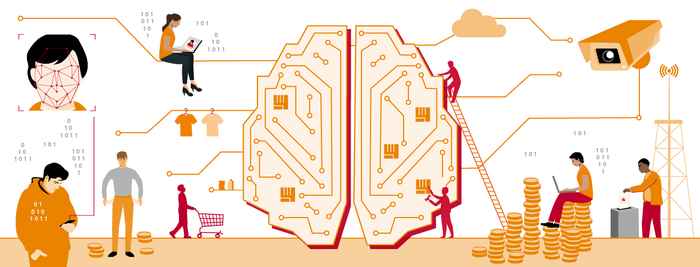Don’t wait for that robot to take over your job
Work & Organizational Psychologist Jessie Koen discusses her research into the impact of AI on work
22 June 2021

Research on AI in the spotlight
Artificial Intelligence (AI) is more than just a set of technologies. AI will fundamentally affect citizens and transform societies, in both desirable and undesirable ways. The FMG Platform Citizens, Society and Artificial Intelligence (CiSAI) unites Social and Behavioural science researchers who analyse these transformations and the effects of AI on societal dynamics and on the lives of individual citizens. In the series ‘Research on AI in the spotlight’ we present some of our experts who study these themes.
The development of Artificial Intelligence is bringing changes to the workplace, such as through the introduction of new analytical tools and automated decision-making procedures. These are major processes that have an impact on how we experience our daily work and how we think about our own autonomy, skills and future as employees. To cope with this shift, we need to constantly adapt, learn new skills and develop our knowledge. And organisations must learn to facilitate these efforts.

You shouldn’t wait for a robot to take over your job, but instead anticipate, adapt and develop new skills early on in the processWork & Organizational Psychologist Jessie Koen
Work & Organizational Psychologist Jessie Koen and her colleagues are investigating how this is specifically playing out in one of the sectors where digitalisation is happening at a rapid pace: logistics. ‘As a result, many employees in this sector have to learn new skills that were not covered in their training, and there may even be uncertainty as to whether their jobs will still exist in the future’, Koen explains.
How do people learn?
Based on previous research, Koen knows that there is a strong relationship between job insecurity and unhealthy stress, and that giving up doesn’t help. ‘That just causes more stress.’ Proactive behaviour seems to be a good remedy for job insecurity. ‘You shouldn’t wait for a robot to take over your job, but instead anticipate, adapt and develop new skills early on in the process’, Koen says. The focus of the study therefore lies on this process of anticipation and learning. ‘How can employees continue to develop their skills throughout their lives and thus withstand a labour market that is constantly changing? That is our psychological take on this issue’, Koen explains.
Learning Communities
To study this process of learning, the researchers are delving into the world of Learning Communities. ‘Many SMEs operate in the logistics sector. These companies have limited resources to support their employees’ continued development,’ Koen explains. ‘In Learning Communities, employees from these various companies are brought together to identify the problems they encounter as a result of digitalisation. Together, they come up with solutions to do something about these challenges.’
The Learning Communities in the research project are facilitated by HAN University of Applied Sciences and Rotterdam University of Applied Sciences. Employees are paired with students from these universities who are enrolled in study programmes that match the employees’ work profile. ‘In principle, these students are learning the skills of the future and are still in self-development mode.’
The researchers will measure whether and how these Learning Communities help by administering questionnaires to individual employees. Are they building their skills? The research team will also look at whether these skills can be used in the organisation. How is the acquired knowledge applied within the organisation? Does it lead to innovation and progress?
Opportunity from employers
The goal of Koen and her colleagues’ research is to ultimately find out what promotes and what inhibits the learning process in Learning Communities, and how this translates into success in the workplace. ‘You can learn quite a lot as an employee’, Koen explains, ‘but in the end, your manager or employer also has to provide the opportunity to apply this knowledge so that you can actually deal effectively with change and help the company move forward. A manager can hinder this process, but they can act as a catalyst as well.’
Research team
Want to learn more about AI,Citizens and Society?
